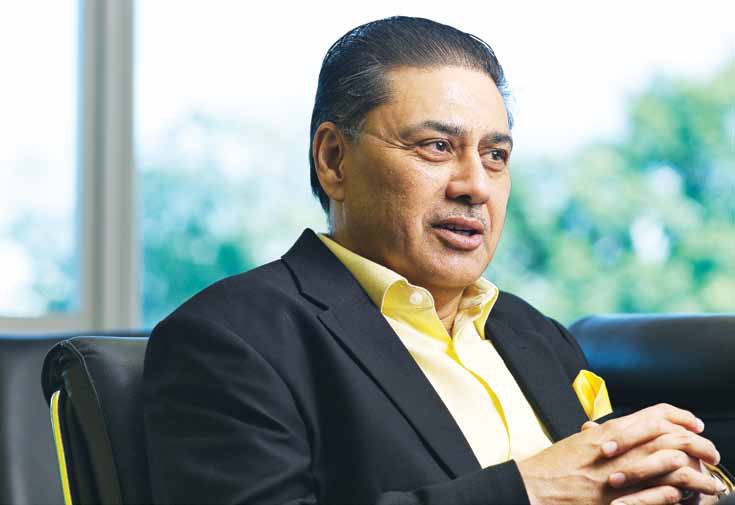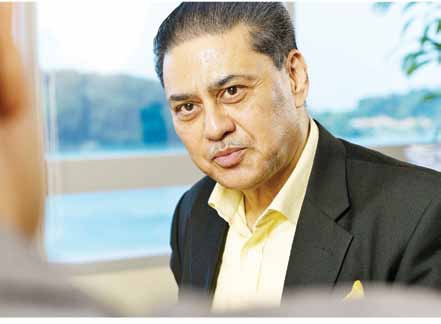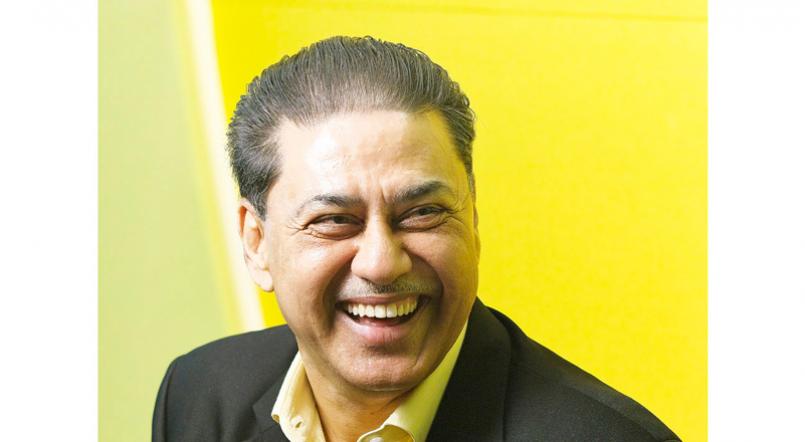1) Start with Self Awareness
Before you can lead others, you must learn to master yourself. Mastery of self begins with self-awareness. If you don’t know who you really are, how in the world are you going to change anything? You have to spend contemplative time alone. In my morning routine, I set aside time to reflect on what bothers me, what drives me, etc.. You have to be brutally frank with yourself.
Let me tell you a story. At one stage of my life, out of the blue, I suddenly became scared to fly; I did not like getting onto that plane. I would feel very tense on flights, especially in bad weather. But I continued to tell myself I was not scared. One day, I said to myself, “Stop lying to yourself — you are afraid of flying.” I then started to share this fear with a few close friends, and realised they were afraid too! Then I asked myself the next level of questions: “Why? And why now?” It became apparent to me that the difference was that I had two young children. What would happen to them if I were to die in a plane crash? It was a completely irrational fear — there were a million other ways I could die. The one difference was that I was not in control of the vehicle.
Once I accepted this rationale, the fear dissipated; soon enough, I was back to appreciating the joy of flying. Self-awareness is very important but it takes courage. It helps you to know who you are, and forces you to question your values.
2) The Key to Unlocking Innovation
One of the major roles of my leaders in the Asia-Pacific is to remove fear from the organisation. People have to be encouraged to take risks through experimentation. I celebrate bold failures and criticise inaction. Once you have removed fear from the organisation, there are two cornerstones for innovation.
First, you need deep insights about your consumers — you have to walk in their shoes. The second is having diversity of thought inside the organisation. I mean this in the broadest sense: having people from different nationalities, age, gender, experiences and expertise, functions, etc., all working together towards a common goal to answer what we have learnt in our insights work. That’s when you get powerful innovation happening across the organisation.
3) Being Truly Glocal
Most people mistakenly believe that ‘glocal’ means taking global initiatives and driving them into a local market. To me, to be truly glocal, you need to take local knowledge and bring global muscle to the way in which you execute. For example, we realised that Chinese consumers enjoyed wafers, and not just cookies. So we developed a wafer-version of Oreos that worked really well in China.
That’s taking a local insight, understanding it clearly, and then leveraging the global might and marketing muscle of a brand like Oreo to delight our Chinese consumers. In fact, this wafer Oreo innovation has been so successful it even got exported back to the United States as a reverse-innovation.

4) Why? Why Not?
One of my professional values is to make sure I’m always learning. I do this by remaining curious and always asking questions. The day you lose your curiosity is the day you stop learning. You can ask any question in business. Can you infuse a salty taste with chocolates? What if product X was distributed in another part of the store? Shouldn’t Oreos be displayed next to milk? “Why” and “why not” are the two most important questions in the world.
5) The Fun in Winning
The longest part of your adult waking life is spent at work. If you aren’t having fun, you’re in trouble – you’re wasting your life. So I come to the office everyday to have fun. I don’t mean fun as in dancing on your boss’ table – though that’s okay too once in awhile! Fun is making things happen. For example, look at children playing – they have the most fun when they have thrown the basket into the hoop, or when they have made a person out of plasticine. They have fun because they achieved something, and because they’ve won. It’s the same with adults.
Here at Kraft Foods, we make it a point to celebrate victories –big celebrations for big victories, and small celebrations for small victories.
6) What I Look for in Leaders
First, they should bring positive energy to the organization. Next, they should show a propensity to experiment, learn, and change. I don’t know anyone in the world with all the solutions. The trick is not to have all the answers – but to know which questions to ask. One thing I will not compromise on is values – If I get the slightest sense that there is a problem with values, or the entire focus of the person is on himself, rather than helping the team win, I will not hire that individual.
7) Danger & Opportunity
I’m inspired by the Chinese characters for crisis, which is made up of the Chinese characters for danger and opportunity. They had this right. In every challenge, we have to get it into our mindsets to look for the opportunity. I think back to the last financial crisis. What were companies doing? They were withdrawing products from the market, cutting back on advertising spend, and letting people go. This was the state of play for 90% of companies. We said this is an opportunity. Out there in the marketplace, there are still consumers. In a downturn, consumers won’t allow themselves big indulgences – but they still want small indulgences. That was an opportunity. Launch a new product – whether it’s the trade or consumers – they are all waiting for good news in the middle of the crisis.
There were also some very good people who were being let go by the competition. We have a talent shortage here in Asia, so I asked myself “Why are we not hiring these guys?” Human beings are more bulls than bears. They believe in the future, because if we didn’t, we’d be all gone.

8) Manage Energy, Not Time
People often ask me about time management. But I often tell them it’s the wrong way to think about achieving balance. After all, there are only 24 hours in a day. If you stop thinking about managing time, and focus on managing energy, the field becomes open because while time is finite, energy is infinite. Spending 10 minutes talking with my son – connecting with real energy - is worth so much more than spending an hour being slumped together on the couch watching TV without any conversation.
9) Multiply Energy
How do I stay energetic? There has to be discipline on fundamental things like eating, exercising, resting and so on. Every morning I do yoga for an hour. If I have a 6 am flight, I will get up at 3 am to do yoga. In that one hour, I create energy for the next 14 hours. Secondly, energy comes from a true desire to win. Help people build their skills, give them the right tools, and instil a passion for winning. Passion is the magic, but the toughest to build. You do this by giving the organization a larger purpose and a clear direction. Everyone wants to know in an organization that the change they bring is valued. Third, people multiply energy. If you give energy to people, it’s almost a given that they will give energy back to you.
10) Defining Moments
When I reflect back on my career, there are scenes that stick out in my mind. I joined Tatas in Bombay early in my career. I was living in a flat in downtown Bombay, India’s most exciting city. I had a motorcycle, a girlfriend, worked for a great company – life was grand. One day, my division manager came over and said “Pradeep – you are one of our brightest young people”, so I said, “Thank you, Sir”. And he continued, “So we are going to post you to Bihar – it will be great place for you to learn”. Taken aback, I asked him, “Why are you sending me to the boon-docks?” After all, Bihar was a state with the lowest per capita income and highest crime rates in India at the time.
Reflecting back, sometimes what other people advocate you do may not be comfortable or convenient at the time, but they’re saying it for your larger good. And he was right. The lessons I learnt while in Bihar – a Wild West kind of place - were outstanding and lifelong: how to manage people, how to manage finances, how to manage myself. I made friends for life. It was stupendous stuff. Sometimes you have to trust others – even if you find it uncomfortable. Because when you’re outside of your comfort zone, that’s when learning begins.
This article was first published in HQ Asia (Print) Issue 03 (2012)


